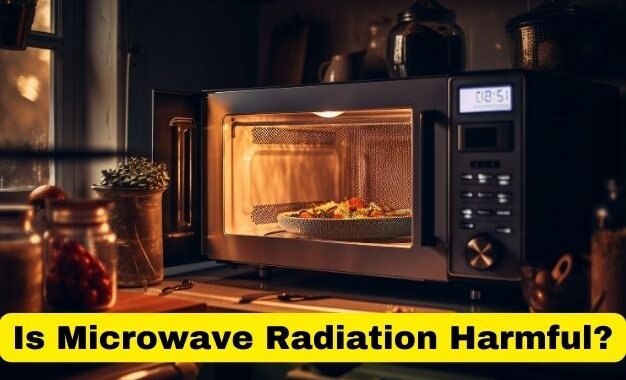Your search of “Is Microwave Radiation Harmful to Humans” is completed because in this we will explore the answer to this question. Since the 1960s, microwaves have gained popularity due to their convenience, impressive energy efficiency, rapid processing capabilities, and user-friendly design. Since then, researchers have been investigating how microwaving foods may affect their nutrient content, for better or worse.
What is Radiation
If you want to know whether microwave radiation is harmful to humans or not, then you first need to know what is radiation.
Radiation can be found all around us in varying amounts. It is essentially the release of energy that is emitted by everyday things, such as the sun and household electrical appliances. We are always exposed to natural background radiation. From radioactive gases coming out of the earth to radioactive substances present in the soil. Your mobile phone emits radiation, just like heaters, computers, and radios. it’s everywhere!
Does this mean that we face constant threats from microwaves and the environment around us? Let’s investigate.
Initially, grasping the functioning of a microwave is crucial.
Also Read- https://fyrepairs.com/10-possible-reasons-why-your-refrigerator-is-not-cooling/
How do microwaves work
Before we explore the process of how microwaves heat your food, let’s differentiate between two distinct types of radiation.
- Ionizing radiation
- Non-ionizing radiation.
Ionizing radiation, which can remove tightly bound electrons from atoms, causing them to become charged, is less risky in very small doses (such as X-rays), but can cause problems (burns) if exposure is high. Is. Can. And also think about DNA damage).
Microwaves emit non-ionizing radiation, which has enough energy to move atoms around within a molecule but is not capable of removing electrons.
Because the radiation emitted from microwaves is non-ionizing, it can only cause movement in food molecules. This is good! In other words, microwave radiation cannot change the chemical composition of food components.
More precisely, when heating food in a microwave, the radiation that the microwave produces is absorbed by the water molecules in the food. This energy causes the water molecules to vibrate, producing heat through this (harmless) friction, which cooks the food.
This mechanism makes the microwave faster to heat food than other methods. Its energy immediately reaches molecules that are about an inch below the outer surface of the food, whereas other cooking methods move heat slowly into the food through conduction, such as the bottom of a saucepan being directly heated. The hob touches the ring.
Also Read- https://fyrepairs.com/when-to-do-ac-maintenance-a-guide-to-keeping-cool-in-bangalore/
Is microwave radiation harmful?

Some believe that the energy emitted from microwaves is responsible for causing cancer by damaging one’s genetics. Many studies have been conducted using laboratory animals and in-vitro systems, but few have studied living, human tissue, so it is difficult to find causal relationships.
We know that the non-ionizing radiation used in microwave ovens is not powerful enough to transfer radiation to food: it can only cause water molecules to transfer.
It has never been proven that microwaves cause any harm through the foods that we cook with them so you should not worry whenever you want to heat a pot of soup or leftover baked beans. As long as you follow the instructions for use. , That came with your microwave.
These include standing away from food while it is cooking, closing the door properly before ‘starting’, and replacing old and broken microwaves, which may leak more radiation externally than we expect.
Next to do
Gaining expertise by completing our advice can be your first step towards gaining unique knowledge and skills to help your clients make the necessary changes to their diet and lifestyle in a personalized way.
You will also learn:
- How to assess clients and identify risks for nutrient deficiencies.
- How to structure client consultations
- About free radicals and DNA damage
- How to test antioxidant capacity and so much more!
Get started now and begin expanding your knowledge and building your future in nutrition.



Leave a Reply